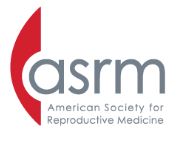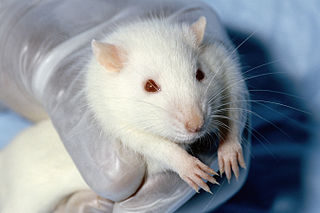Related Research Articles

The American Psychological Association (APA) is the main professional organization of psychologists in the United States,and the largest psychological association in the world. It has over 157,000 members,including scientists,educators,clinicians,consultants,and students. It has 54 divisions—interest groups for different subspecialties of psychology or topical areas. The APA has an annual budget of around $125 million.

Human subject research is systematic,scientific investigation that can be either interventional or observational and involves human beings as research subjects,commonly known as test subjects. Human subject research can be either medical (clinical) research or non-medical research. Systematic investigation incorporates both the collection and analysis of data in order to answer a specific question. Medical human subject research often involves analysis of biological specimens,epidemiological and behavioral studies and medical chart review studies. On the other hand,human subject research in the social sciences often involves surveys which consist of questions to a particular group of people. Survey methodology includes questionnaires,interviews,and focus groups.
An institutional review board (IRB),also known as an independent ethics committee (IEC),ethical review board (ERB),or research ethics board (REB),is a committee at an institution that applies research ethics by reviewing the methods proposed for research involving human subjects,to ensure that the projects are ethical. The main goal of IRB reviews is to ensure that study participants are not harmed. Such boards are formally designated to approve,monitor,and review biomedical and behavioral research involving humans,and they are legally required in some countries under certain specified circumstances. Most countries use some form of IRB to safeguard ethical conduct of research so that it complies with national and international norms,regulations or codes.
Archaeological ethics refers to the moral issues raised through the study of the material past. It is a branch of the philosophy of archaeology. This article will touch on human remains,the preservation and laws protecting remains and cultural items,issues around the globe,as well as preservation and ethnoarchaeology.

The American Society for Reproductive Medicine (ASRM) is a nonprofit,multidisciplinary organization for advancement of the science and practice of reproductive medicine. The society has its headquarters in Washington,D.C and its administrative office in Birmingham,Alabama.
The Declaration of Helsinki is a set of ethical principles regarding human experimentation developed originally in 1964 for the medical community by the World Medical Association (WMA). It is widely regarded as the cornerstone document on human research ethics.
The National Health and Medical Research Council (NHMRC) is the main statutory authority of the Australian Government responsible for medical research. It was the eighth largest research funding body in the world in 2016,and NHMRC-funded research is globally recognised for its high quality. Around 45% of all Australian medical research from 2008–12 was funded by the federal government,through the NHMRC.

Animal testing regulations are guidelines that permit and control the use of non-human animals for scientific experimentation. They vary greatly around the world,but most governments aim to control the number of times individual animals may be used;the overall numbers used;and the degree of pain that may be inflicted without anesthetic.

The Federal Ministry of Health is one of the Federal Ministries of Nigeria concerned with the formulation and implementation of policies related to health. It is headed by two Ministers appointed by the President,assisted by a Permanent Secretary,who is a career civil servant. The current Minister of Health is Muhammad Ali Pate. The current Minister of State for Health is Tunji Alausa. The Federal Ministry Of Health has over 800 workers consisting of closely 430 women and 370 men.[5]
Human subject research legislation in the United States can be traced to the early 20th century. Human subject research in the United States was mostly unregulated until the 20th century,as it was throughout the world,until the establishment of various governmental and professional regulations and codes of ethics. Notable –and in some cases,notorious –human subject experiments performed in the US include the Tuskegee syphilis experiment,human radiation experiments,the Milgram obedience experiment and Stanford prison experiments and Project MKULTRA. With growing public awareness of such experimentation,and the evolution of professional ethical standards,such research became regulated by various legislation,most notably,those that introduced and then empowered the institutional review boards.
The Presidential Commission for the Study of Bioethical Issues was created by Executive Order 13521 on November 24,2009. The Bioethics Commission advised President Barack Obama on bioethical issues arising from advances in biomedicine and related areas of science and technology. It replaced The President's Council on Bioethics appointed by United States President George W. Bush to advise his administration on bioethics,and the National Bioethics Advisory Commission (1996-2001). No national organization replaced it when its authorization expired;it "held its final meeting at the end of August 2016 and closed its doors."
Clement Adebamowo is a Nigerian medical researcher and academic. Born in Lagos,Nigeria,Adebamowo is currently Director For Global Health Cancer Research,and a professor of Epidemiology &Public Health,at the University of Maryland School of Medicine. He is known for his work in cancer epidemiology,nutrition epidemiology,and research ethics,particularly in low resource and under-served in Africa.

The 2013–2016 epidemic of Ebola virus disease,centered in Western Africa,was the most widespread outbreak of the disease in history. It caused major loss of life and socioeconomic disruption in the region,mainly in Guinea,Liberia and Sierra Leone. The first cases were recorded in Guinea in December 2013;later,the disease spread to neighbouring Liberia and Sierra Leone,with minor outbreaks occurring in Nigeria and Mali. Secondary infections of medical workers occurred in the United States and Spain. In addition,isolated cases were recorded in Senegal,the United Kingdom and Italy. The number of cases peaked in October 2014 and then began to decline gradually,following the commitment of substantial international resources.

A public health emergency of international concern is a formal declaration by the World Health Organization (WHO) of "an extraordinary event which is determined to constitute a public health risk to other States through the international spread of disease and to potentially require a coordinated international response",formulated when a situation arises that is "serious,sudden,unusual,or unexpected",which "carries implications for public health beyond the affected state's national border" and "may require immediate international action". Under the 2005 International Health Regulations (IHR),states have a legal duty to respond promptly to a PHEIC. The declaration is publicized by an IHR Emergency Committee (EC) of international experts,which was developed following the 2002–2004 SARS outbreak.

Recombinant vesicular stomatitis virus–Zaire Ebola virus (rVSV-ZEBOV),also known as Ebola Zaire vaccine live and sold under the brand name Ervebo,is an Ebola vaccine for adults that prevents Ebola caused by the Zaire ebolavirus. When used in ring vaccination,rVSV-ZEBOV has shown a high level of protection. Around half the people given the vaccine have mild to moderate adverse effects that include headache,fatigue,and muscle pain.

Organizations from around the world responded to the West African Ebola virus epidemic. In July 2014,the World Health Organization (WHO) convened an emergency meeting with health ministers from eleven countries and announced collaboration on a strategy to co-ordinate technical support to combat the epidemic. In August,they declared the outbreak an international public health emergency and published a roadmap to guide and coordinate the international response to the outbreak,aiming to stop ongoing Ebola transmission worldwide within 6–9 months. In September,the United Nations Security Council declared the Ebola virus outbreak in the West Africa subregion a "threat to international peace and security" and unanimously adopted a resolution urging UN member states to provide more resources to fight the outbreak;the WHO stated that the cost for combating the epidemic will be a minimum of $1 billion.
Oyewale Tomori is a Nigerian professor of virology,educational administrator,and former vice chancellor of Redeemer's University.

Cases of the Ebola virus disease in Nigeria were reported in 2014 as a small part of the epidemic of Ebola virus disease which originated in Guinea that represented the first outbreak of the disease in a West African country. Previous outbreaks had been confined to countries in Central Africa.
Monitored Emergency Use of Unregistered and Investigational Interventions (MEURI) is an ethical protocol developed by the World Health Organization to evaluate the potential use of experimental drugs in the event of public health emergencies. The protocol was created by the WHO Ebola Ethics Working Group in 2014 in the context of the 2014 West Africa Ebola outbreak. The WHO recommends that the term be preferred to the term "compassionate use" or "expanded access" for the controlled use of unregistered treatments in public health emergency measures.
References
- ↑ "National Code for Health Research Ethics. Federal Ministry of Health" (PDF). National Health Research Ethics Committee. 2007.
- ↑ "National Code for Health Research Ethics. Federal Ministry of Health" (PDF). National Health Research Ethics Committee. 2007.
- ↑ Aminu Yakubu, Clement A. Adebamowo (2012). "Implementing National System of Health Research Ethics Regulations: The Nigerian Experience". BEOnline. 1 (1): 4–15. PMC 3855243 . PMID 24324978.
- ↑ "NHREC Statement on Ebola Care". Nigerian National Health Research Ethics Committee. 9 August 2014. Archived from the original on 12 August 2014. Retrieved 12 August 2014.
- ↑ "Ebola struggle hit by failure to involve local people". Sci Dev Net. 24 February 2015. Retrieved 30 March 2015.
- ↑ Biriowo, Kazeem (2024-01-23). "FG inaugurates ethics committe to regulate health research". Tribune Online. Retrieved 2024-02-01.